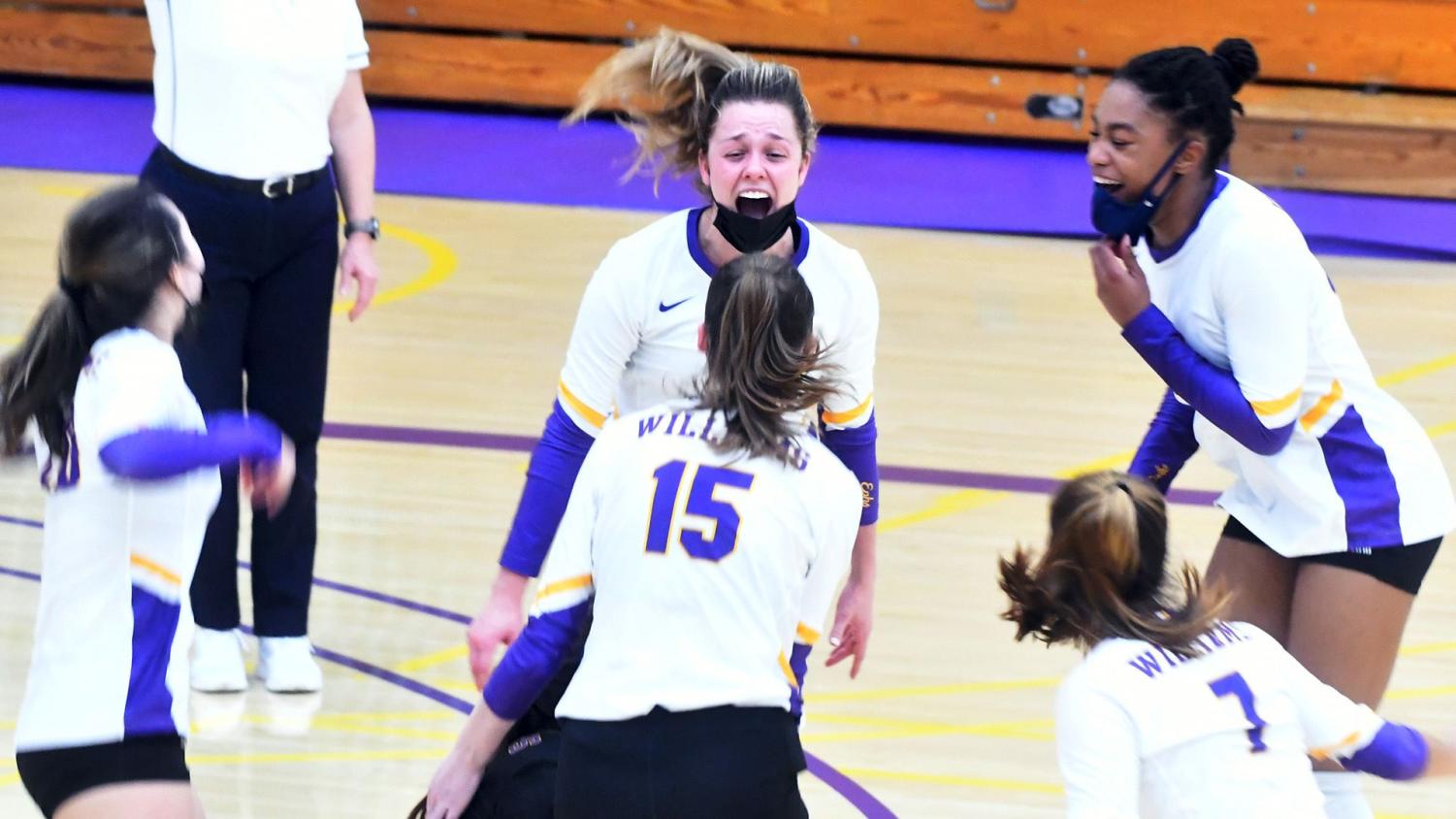Fall sports teams conduct non-traditional spring practices
May 4, 2022

This spring season saw fields, courts, and athletic facilities on campus a little busier than usual. Unlike in a typical spring, the NESCAC has allowed fall sports teams to conduct practices with their coaches. “This was a one-time response coming out of COVID to support student-athlete well-being on many fronts,” Athletic Director Lisa Melendy wrote in an email to the Record.
While the decision does not allow for inter-college competition, teams are now allowed to practice with coaches up to four times a week for a maximum of five total weeks, according to Melendy, which is a significant change from a normal spring for fall sports teams.
“We’re just able to have more time with our coach,” Catherine VerMeulen ʼ25, a member of the volleyball team, said. “[In] a normal year, we’re only allowed to have captain-led practices. We’re barely allowed to see our coach at all in the offseason.”
While similar practices were also permitted last spring, masking and social distancing restrictions as well as diminished rosters made having regular practices difficult. This spring, teams have been able to practice as they would in a normal fall season, a departure from pre-COVID times. “Last year, we didn’t exactly have a spring season, but we were given spring practices with the coach as well because more of the team was back on campus [after the fall semester],” Will Jackson ʼ24, a member of men’s soccer, said. “So that kind of carried over.”
Sam Phan ʼ24, a member of the women’s soccer team, emphasized the differences between these non-traditional spring practices and a typical season in the fall. “I think the vibe is sort of different because our fall season was kind of intense and stressful,” Phan said. “So in the spring, we’re focusing more on just playing.”
“In season, people would get to practice super early, and it would just feel like you were hanging around the locker room a lot,” Phan added. “We would also run to practice — it was just a lot more stressful. But this time, it’s just like, ‘Do what you need to do to get there.’”
According to Jackson, however, his team’s practices have remained intense due to the need to narrow down the number of players on the roster for the fall season. “Because of COVID, we’re such a large group now,” Jackson said. “People haven’t graduated out and then people are coming in [next fall]. So it’s definitely an intense environment because of that.”
Throughout the adjustment to a new practice schedule, the flexibility offered by coaches has been widely appreciated. “My coach is really good about the offseason being the offseason,” VerMeulen said. “If you ever need a practice off because of mental health reasons, because it’s just too much or too stressful, you can take the practice off. But I think for all of us, it adds to our day and it’s actually a relief to be able to go and play with a coach and have that structured time.”
Phan also indicated that rules about attending practices were less strict than during the regular fall season. “Some players who want to be dedicating more time elsewhere are only coming to two practices [a week],” she said.
VerMeulen expressed satisfaction with the new nontraditional spring season, citing the balance achieved between competition and fun. “In high school, I was playing club volleyball throughout this time, and that lasts into late June,” VerMeulen said. “You’re going three to four times a week, plus you’re lifting outside because you want to improve, and on top of that, you have competitions every weekend and you’re playing up to six games on the weekends, so it’s a lot. This is super chill, and it’s a relief to be able to just enjoy playing volleyball.”
“In Division I, a lot of the teams play a spring season, and I think there’s a slight desire to have year-round play because … it’s really weird when [the sport] is suddenly cut out of your life,” Jackson said.
However, he acknowledged that not everyone on the team felt the same way about the more demanding offseason. “I’m very supportive of this current direction,” Jackson said. “But I’d say that feelings in the team might be mixed — I can’t say that everybody’s on board. But I’d say that people have really enjoyed this preseason so far.”
Next spring, fall sports teams will likely be moving back to traditional captain’s practices and lift sessions. According to Melendy, in a meeting earlier this month, the NESCAC presidents voted against continuing these nontraditional seasons, while allowing some earlier season start dates to better acclimate preparation for competition in the fall.








